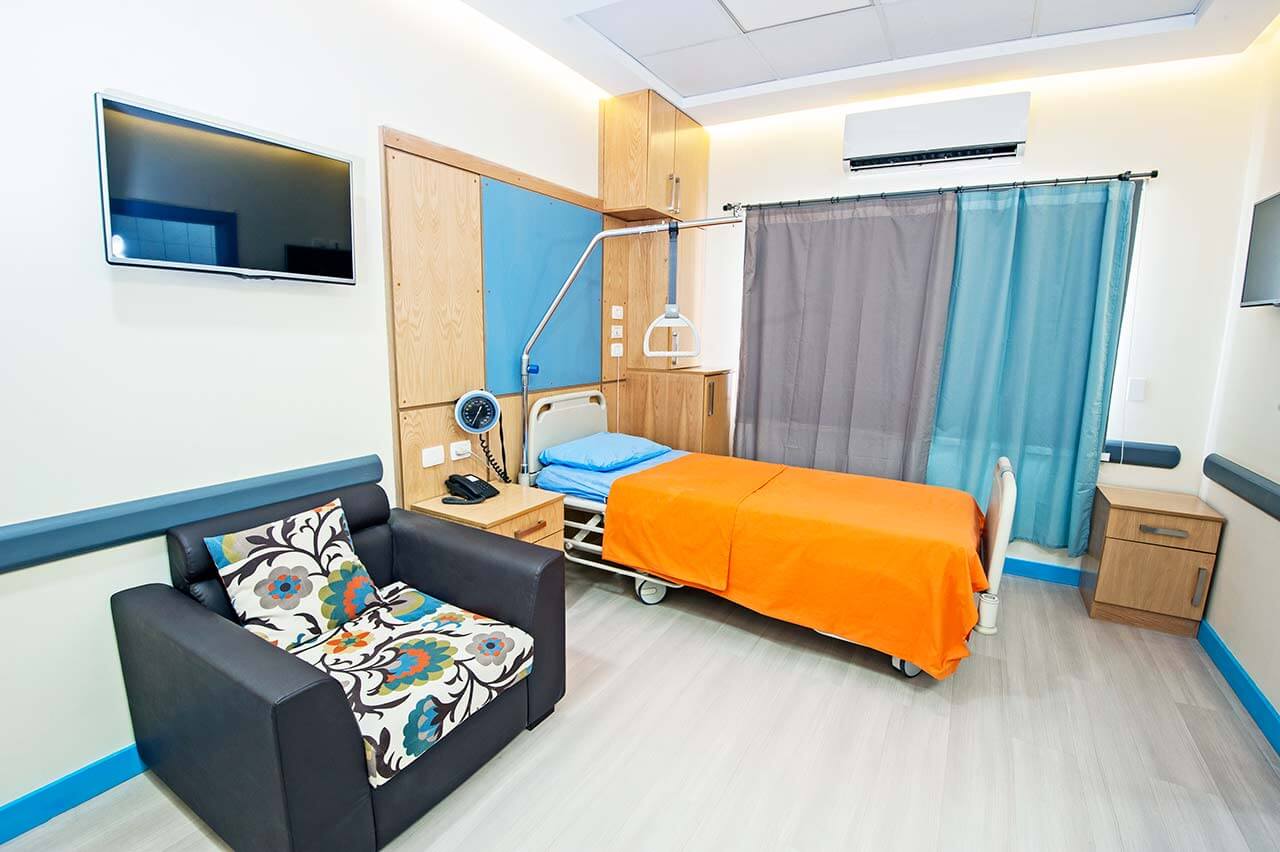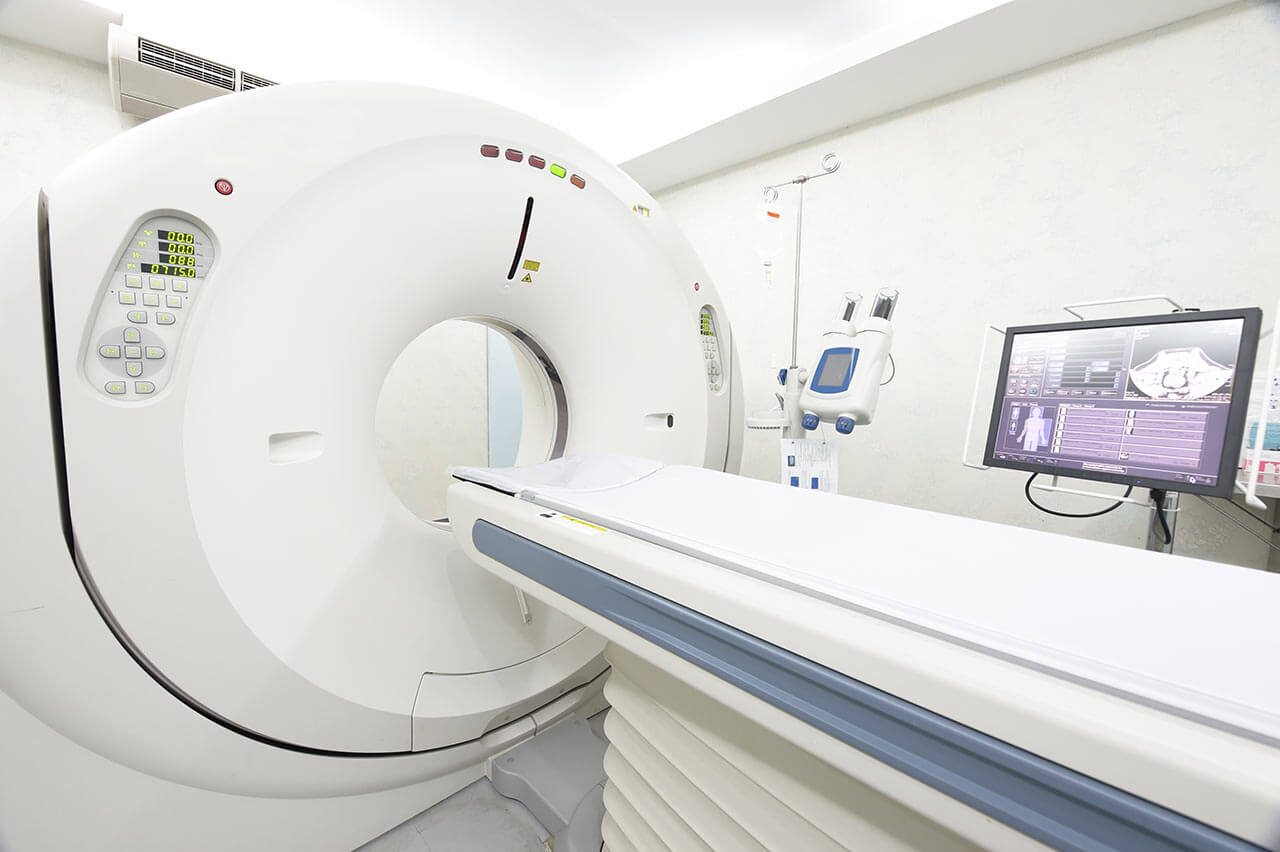
About the Department of Adult and Pediatric Urology at Bundeswehr Hospital Berlin
The Department of Adult and Pediatric Urology at the Bundeswehr Hospital Berlin offers the full range of diagnostics, conservative and surgical treatment of genitourinary diseases in men and boys. The main areas of the department's clinical activity include the treatment of diseases of the kidneys and urinary tract in both sexes, the treatment of pathologies of the reproductive system in men. The doctors pay special attention to the surgical treatment of malignant urologic tumors – more than 1,700 surgical interventions of varying complexity are performed annually in the department. Surgical options for cancer treatment are complemented by various types of chemotherapy and targeted therapy, for example, in kidney cancer. In addition, the department's doctors specialize in the comprehensive treatment of kidney stone disease. The department's specialists have in their arsenal all modern technical resources for the most effective treatment that meets the requirements of modern European medicine. The doctors regularly improve their professional skills by undergoing advanced training courses, participating in national and international conferences for the exchange of clinical experience, etc. The department is headed by Dr. med. Holger Heidenreich.
The department offers the services of a highly specialized Prostate Center Berlin-Mitte. Thanks to an interdisciplinary approach, vast experience and high professionalism of doctors, this center provides the accurate diagnostics and effective treatment of prostate cancer, benign prostatic hyperplasia and prostatitis (inflammatory lesions of the prostate gland). The primary focus of the specialized center is on the treatment of prostate cancer. Since this oncopathology is one of the most common types of cancer in men, the doctors offer comprehensive preventive check-ups to exclude the presence of the malignant disease or to detect it in its early stage. This check-up includes a digital rectal exam, a PSA (prostate-specific antigen) test and transrectal ultrasound (TRUS). If the results of this check-up confirm the presence of a tumor in the prostate gland, then the patient may be prescribed additional diagnostic tests, such as CT, MRI, skeletal scintigraphy or PET/CT. The complex of tests is prescribed by the attending physician individually, based on the particular clinical case. The next stage is the development of an optimal treatment regimen. In a case of localized prostate cancer, surgery and radiation therapy are most commonly used. The patients with metastatic prostate cancer are usually prescribed antiandrogen therapy, chemotherapy, local irradiation of bone metastases, radionuclide therapy, pain management, and other treatment methods.
Prostate adenoma is the most common benign pathology in men, so the department offers all the options of modern urology for the treatment of this disease. Depending on the stage of the pathological process, it is possible to carry out drug therapy or a surgical intervention. In the first case, the department's urologists resort to phytopreparations, 5-alpha-reductase inhibitors, and antiandrogen therapy. If the doctor concludes that the patient requires surgery, then transurethral resection of the prostate, transurethral incision of the prostate, open enucleation, holmium laser enucleation, laser vaporization, transurethral needle ablation, or transurethral microwave thermotherapy can be performed.
The department is also one of the best in the treatment of kidney stone disease. For this purpose, it uses all advanced treatment methods, including extracorporeal shock wave lithotripsy, percutaneous nephrolitholapaxy, stone removal with ureterorenoscopy, bladder stone fragmentation, etc. The treatment method is selected taking into account the size and location of the stone, symptoms and the presence of urinary retention, as well as the patient's general health. Drug therapy is often sufficient for small stones.
The specialists of the medical facility have excellent professional skills in the treatment of bladder cancer. The pathology affects both women and men, but it develops almost four times more often in males. Bladder cancer, like many other cancers, is asymptomatic. The first sign by which oncology can be suspected is the presence of blood in the urine. Other manifestations of the disease may include frequent urination, frequent bladder infections, pain when urinating, etc. The key examinations for suspected bladder cancer are ultrasound scanning and cystoscopy. As for the treatment, the most common option is the surgical removal of the neoplasm – transurethral resection of the bladder.
The department's range of medical services includes:
- Surgical treatment of urologic cancers
- Total removal of the prostate while maintaining potency (radical prostatectomy)
- Total removal of the bladder and its replacement while maintaining the ability to control urination (radical cystectomy)
- Radical removal of a kidney tumor (nephrectomy)
- Removal of the kidney and ureter (nephroureterectomy), also using laparoscopic techniques
- Partial resection of the kidney or enucleation of a kidney tumor (organ-sparing surgery)
- Minimally invasive removal of the lymph nodes (lymphadenectomy)
- Partial and total removal of the penis and lymph nodes for penile cancer (penectomy/lymphadenectomy) with lymph node labeling
- Removal of the testicle with the spermatic cord
- Surgical treatment of kidney diseases
- Simple or radical removal of the kidney with or without the adrenal gland, partial removal of the kidney (nephrectomy)
- Laparoscopic kidney removal
- Renal pelvis plastic surgery (also with the use of laparoscopic techniques)
- Surgery to fix the kidneys in a case of their prolapse (nephropexy)
- Surgical interventions on the external reproductive system
- Foreskin removal/circumcision
- Removal of the testicle and epididymis (orchiectomy/epididymectomy)
- Hydrocele resection
- Removal of seminal fluid accumulation in the epididymis (spermatocele resection)
- Fixation of a movable testicle, repair of testicular torsion (orchidopexy)
- Sclerotherapy for varicocele
- Sterilization in men
- Endoscopic interventions on the urinary and reproductive system in men
- Removal of bladder tumors through the urethra (transurethral resection of the bladder)
- Surgical treatment of benign prostatic hyperplasia with access through the urethra (transurethral resection of the prostate)
- Transurethral incision of the prostate (TUIP)
- Image-guided dissection of the urethra
- Treatment of ureteral stenosis
- Ureteroscopy to remove stones (ureterorenoscopy)
- Electrohydraulic and laser fragmentation of stones, percutaneous nephrolitholapaxy, including mini percutaneous nephrolitholapaxy
- Surgical treatment of kidney stone disease
- Extracorporeal shock wave lithotripsy
- Percutaneous nephrolitholapaxy
- Removal of stones using ureterorenoscopy
- Bladder stone fragmentation
- Other surgical interventions
- Surgical interventions for inguinal hernias
- Open surgery for benign prostatic hyperplasia
- Reconstruction of the urethra using the oral mucosa
- Bladder fixation (in its prolapse) to the coccyx
- Penile prosthetic repair
- Penile curvature correction (Nesbit operation)
- Laparoscopic varicocele clipping (an alternative to sclerotherapy for varicose veins of the spermatic cord)
- Surgical treatment of urologic diseases in children: cryptorchidism, phimosis, varicocele, hypospadias and others
- Other medical services
Photo of the doctor: (c) Bundeswehrkrankenhaus Berlin




